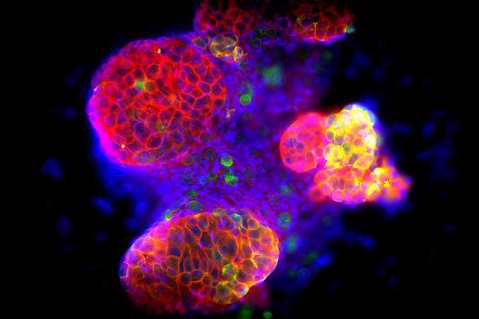Cornell Study Finds That CD8+ T Cell Exhaustion Plays a Critical Role in Chronic Fatigue Syndrome
Nikhil Prasad Fact checked by:Thailand Medical News Team Dec 08, 2024 1 year, 2 weeks, 4 days, 6 hours, 31 minutes ago
Medical News: Myalgic Encephalomyelitis/Chronic Fatigue Syndrome (ME/CFS) is a severe condition affecting millions globally. Symptoms include extreme fatigue, cognitive challenges, muscle pain, and worsening symptoms after physical or mental exertion, known as post-exertional malaise. Despite its debilitating nature, no FDA-approved treatments exist, and the underlying cause remains elusive.
 Cornell Study Finds That CD8+ T Cell Exhaustion Plays a Critical Role in Chronic Fatigue Syndrome
Cornell Study Finds That CD8+ T Cell Exhaustion Plays a Critical Role in Chronic Fatigue Syndrome
A groundbreaking study by researchers from Cornell University and other institutions sheds light on how immune system dysfunction, particularly in CD8+ T cells, contributes to ME/CFS. This
Medical News report dives into the findings and their implications for future treatments.
Focus on CD8 T Cells
The study aimed to uncover the immune abnormalities behind ME/CFS by analyzing T cells, crucial players in immune defense. Using advanced technologies like single-cell RNA sequencing (scRNA-seq) and ATAC-seq, the team studied T cell gene activity and chromatin structure to identify patterns linked to ME/CFS.
The study team found that CD8+ T cells in ME/CFS patients show significant signs of exhaustion - a state where these cells lose their ability to function effectively. This dysfunction aligns with similar immune responses observed in chronic infections and cancer.
Exhaustion Markers and Key Findings
The researchers discovered that ME/CFS CD8+ T cells exhibited:
-Increased Expression of Exhaustion Markers
Cells showed high levels of exhaustion-related genes such as PD-1 and TOX. These markers indicate a suppressed immune response, potentially caused by prolonged antigen exposure.
-Epigenetic Changes
Exhausted T cells in ME/CFS displayed altered chromatin landscapes, with reduced accessibility in genes critical for immune activation. This suggests these cells have a long-lasting reprogramming towards dysfunction.
-Altered Metabolism
Metabolic shifts, such as reduced glycolysis and mitochondrial activity, further support the exhaustion phenotype. These changes impair the cells' ability to generate energy for effective immune responses.
Insights From Symptom Provocation
Interestingly, when ME/CFS patients underwent exertion challenges, their T cells showed an exacerbated exhaustion profile. This finding aligns with the hallmark symptom of post-exertional malaise and provides a potential link between immune dysfunction and symptom flare-ups.
Implications for Treatment
The study suggests potential therapeutic avenues for ME/CFS, such as:
-Checkpoint Blockade Therapy
Treatments targeting inhibitory receptors like PD-1
may help rejuvenate exhausted T cells.
-Metabolic Interventions
Drugs that restore proper energy metabolism in T cells could improve immune function.
-Targeting Viral Persistence
Since chronic infections might drive T cell exhaustion, antiviral therapies could offer relief.
Conclusions
This research represents a significant step forward in understanding ME/CFS. The findings suggest that CD8+ T cell exhaustion plays a critical role in the disease, driven by a combination of genetic, epigenetic, and environmental factors.
While this study focuses on immune dysfunction, it opens up broader questions about ME/CFS, such as the potential role of chronic infections or reactivated viruses. The study also underscores the need for personalized approaches, considering the unique immune profiles of ME/CFS patients.
In conclusion, this research highlights the importance of the immune system in ME/CFS and provides a foundation for developing targeted therapies.
The study findings were published in the peer-reviewed journal: Proceedings of the National Academy of Sciences.
https://www.pnas.org/doi/epub/10.1073/pnas.2415119121
For the latest on Chronic Fatigue Syndrome, keep on logging to Thailand
Medical News.
Read Also:
https://www.thailandmedical.news/news/malaysian-researchers-unveil-the-role-of-dppiv-in-covid-19-cerebrovascular-complications-and-post-covid-fatigue
https://www.thailandmedical.news/news/creatine-supplementation-shows-promise-for-chronic-fatigue-syndrome
https://www.thailandmedical.news/news/tawa-tawa-plant-extract-shows-promise-in-easing-fatigue-and-boosting-energy-for-post-covid-patients
